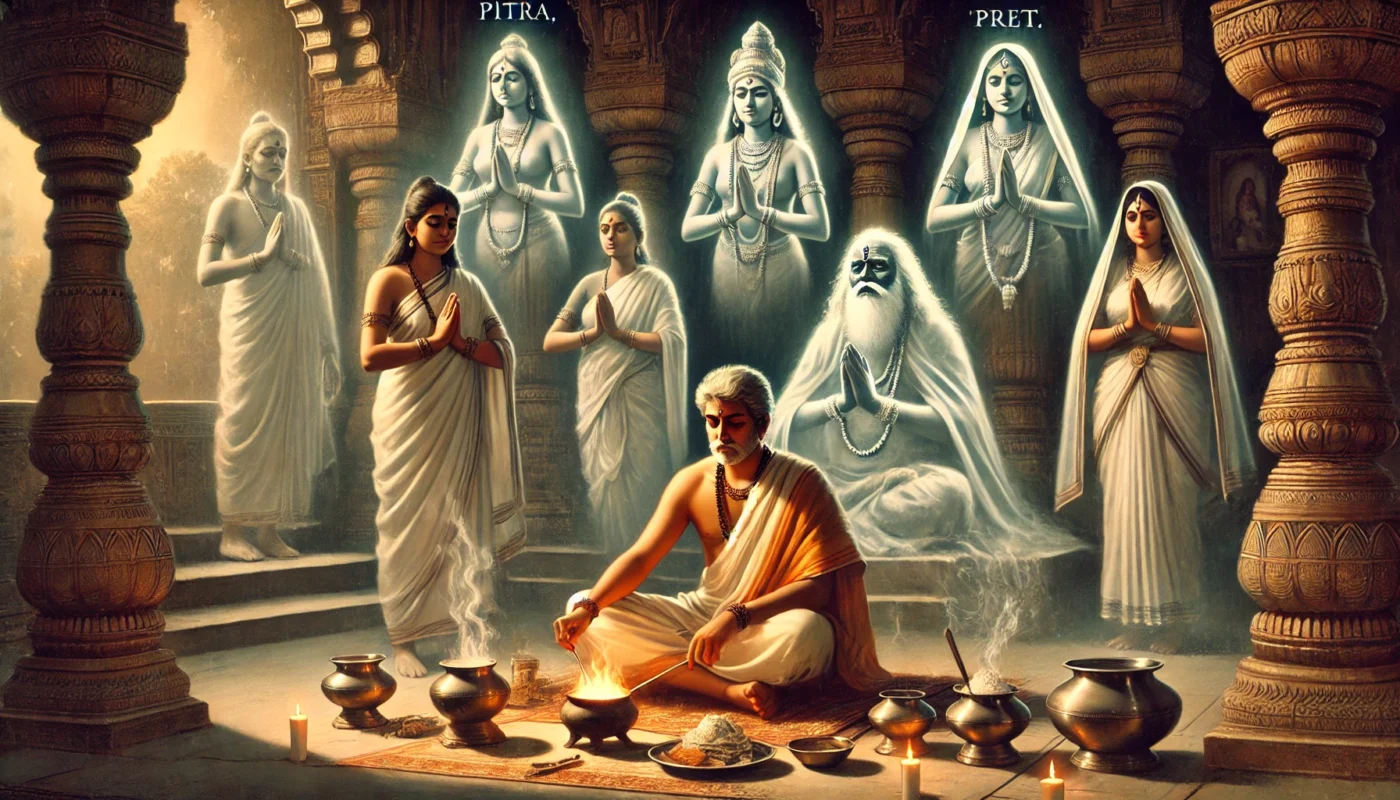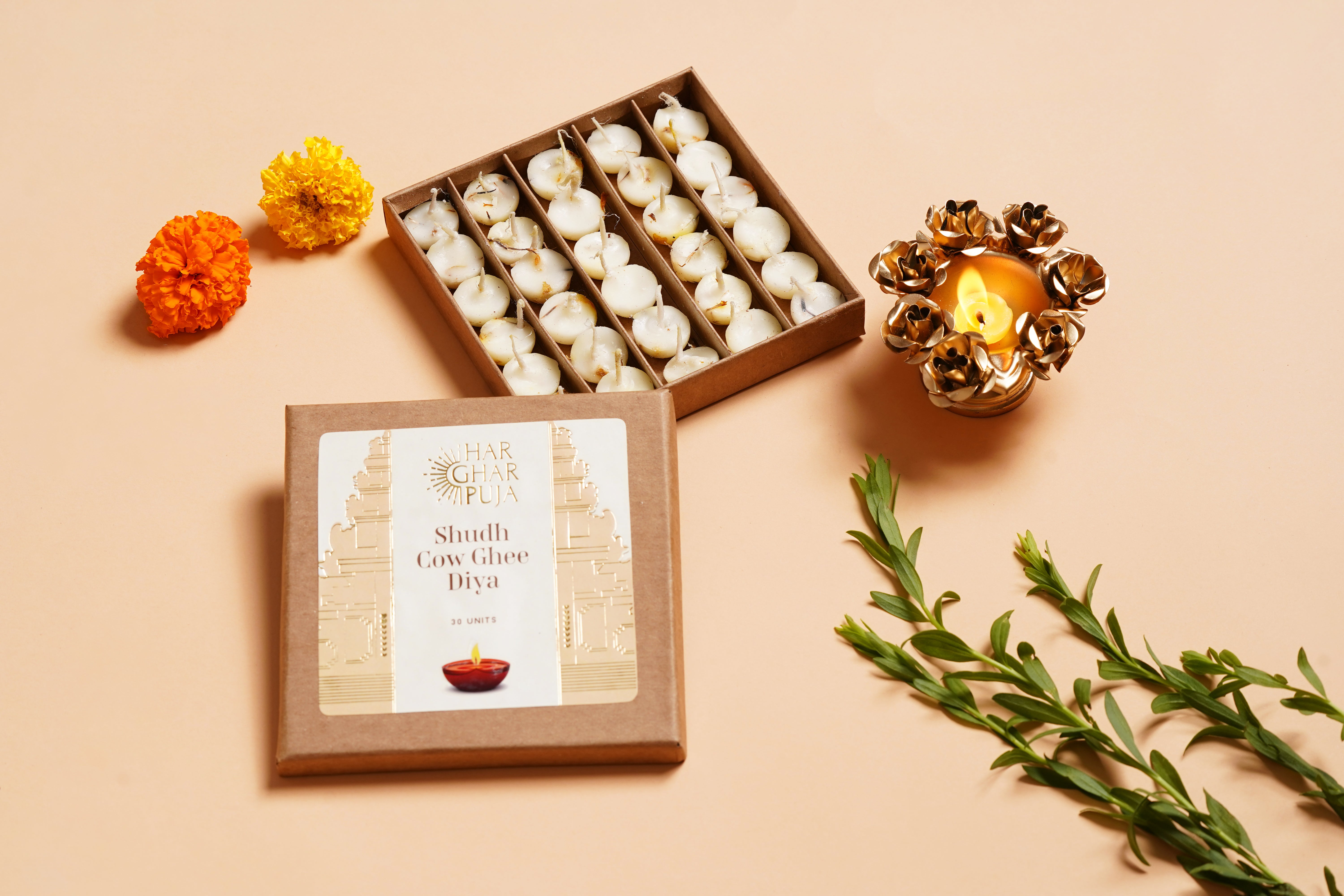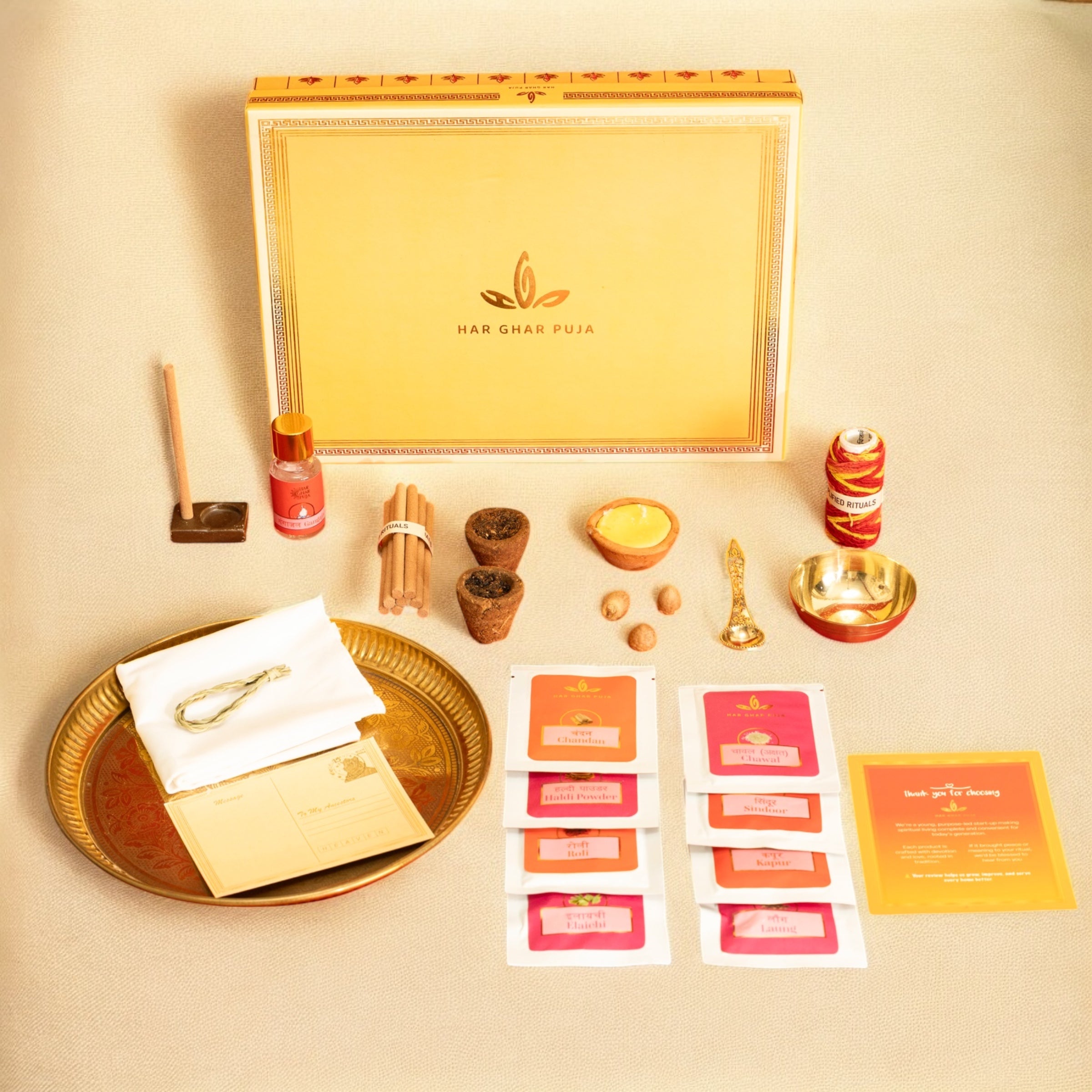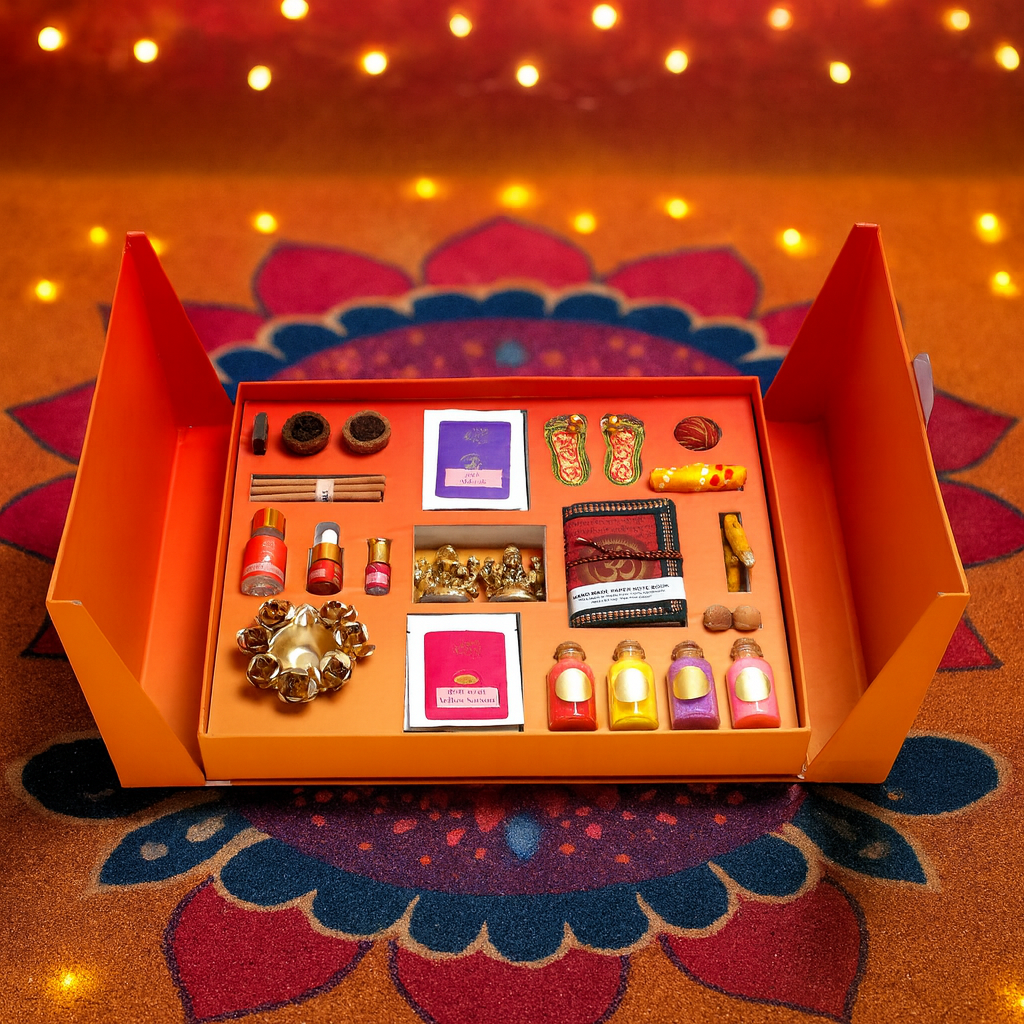In Hinduism, there are several beliefs regarding the journey of the soul after death. Two terms that often come up in discussions about the afterlife are Pret and Pitra or Pitar. While both are related to the soul, their roles, states, and the impact they have on the living differ significantly. Let’s explore the key differences between Pret and Pitar, their significance, and how they are treated in Hindu rituals.
Table of Contents
What is a Pret (Spirit)?

A Pret is a spirit or a soul that has not yet found peace after death. This state can arise due to various reasons, including:
- Untimely Death: If a person dies prematurely or under tragic circumstances, the soul may become a Pret and remain restless.
- Unfulfilled Desires: When a person passes away with unfulfilled wishes, the soul can remain attached to the material world.
- Negative Actions (Karma): Souls of individuals who commit immoral or harmful actions may not be able to transition smoothly and thus become Pret.
A Pret is believed to be an unsettled spirit, and its presence can cause disturbances in the lives of the living. People believe that these spirits may wander, seeking resolution or fulfillment of their desires. In order to help them attain peace and move on from this world, specific rituals like Pret Shraddha or Tarpana are performed, ensuring that the soul finds liberation.
What is a Pitra (Ancestor)?

A Pitra refers to ancestors who have passed away but have attained peace and are considered to have reached a higher spiritual state. They are revered as benevolent spirits who guide and protect their descendants.
A soul becomes a Pitar once its earthly attachments are resolved, and it is honored through rituals such as Shraddha and Tarpana. Pitras are believed to bless their family members with prosperity, good health, and happiness. The Pitru Paksha period is dedicated to honoring these ancestors through offerings and prayers, expressing gratitude, and seeking their blessings.
Key Differences Between Pret and Pitra
- Pret: Restless souls who have not found peace, often due to unresolved desires or karmic issues.
- Pitra: Peaceful souls of ancestors who bless and guide their descendants.
- Pret: Can cause disturbances in the material world.
- Pitra: Protect and bless their family.
- Pret: Require rituals like Pret Shraddha for salvation.
- Pitra: Honored through Shraddha and Tarpana, especially during Pitru Paksha.
Rituals for the Peace of Pret and Pitra
- Pret: Special rituals such as Pret Shraddha are performed to help release the soul from its unsettled state.
- Pitra: Offerings like Pind Daan, Tarpana, and Shraddha are performed to honor ancestors and seek their blessings.
Performing these rituals, particularly during Pitru Paksha, holds immense significance as it provides both Pret and Pitar a form of closure. Pret are liberated from their earthly attachments, while Pitar remain pleased and bless the family. Failing to perform these rites can lead to disturbances in the lives of descendants, including Pitar Dosh, which brings misfortunes such as health problems, financial instability, and family disputes.
These rituals help maintain the spiritual connection between the living and the deceased, ensuring that the departed souls rest in peace and continue to protect and guide their families from the afterlife.
If you are looking for authentic pooja products, kindly check our HarGharPuja products by clicking this link.
Pret and Pitra represent two different stages of a soul’s journey after death. While Pret souls are believed to be stuck in a state of unrest, needing special rituals for liberation, Pitras are ancestors who have found peace and continue to guide and bless their families. It is important to perform the necessary rituals to ensure that departed souls transition smoothly and that the Pitras’ blessings continue to support their descendants.
Through these rituals, Hindus maintain a strong connection to their ancestry and fulfill their responsibilities toward both restless spirits and peaceful ancestors.







